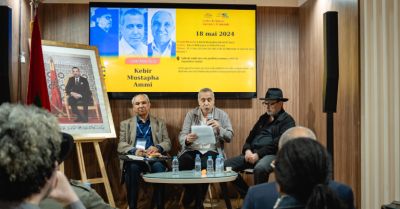Fouad Bellamine, a major player on the Moroccan arts and cultural scene, started by wondering why in Morocco the quantitative outweighs the qualitative in our relationship with the arts. A question that cannot be addressed ‘without talking about education and training, and in particular the curricula of fine arts schools’ or without talking about ‘houses of culture", these beautiful edifices across the country that are still closed.
According to Driss Khrouz, ‘culture is not always intrinsically virtuous, because it can also mask hypocrisy and lies’, and art ‘takes on the mission of changing the world, but it can change it for the worse, or for the better, through the connection of knowledge’.
Culture is essentially what enables individuals to be free in terms of their awareness, but once it is embedded in a power, it requires connections and in-depth knowledge of the environment, because ‘art and creativity are not a product of nature, they are a state of culture and knowledge’.
For Driss Khrouz, there can be no free or pure art: ‘’Art is only as good as the capacities or means it uses to fit into its environment‘’, so there can only be art within the community, because ‘’seen from above, we are all one family‘’.
CCME



